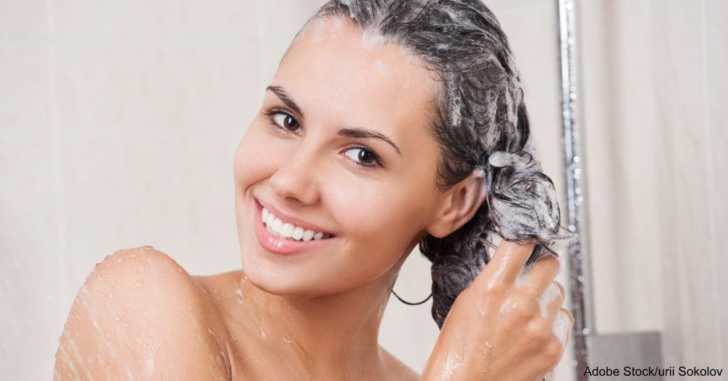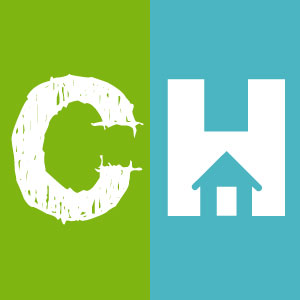You may have heard rumblings about the “No ‘Poo Movement.” Some people are shunning manufactured shampoos and conditioners in favor of a more natural lifestyle. This doesn’t necessarily mean that they stopped washing their hair altogether (though some do use only water) — but rather, many people are using natural substitutions and washing their hair less frequently. But is it worth all the hype?
The thing to keep in mind is that this movement is all word of mouth. And while it’s trendy and intriguing and all-natural, studies are lacking, and baking soda (a common staple of the no ‘poo movement) is coming under fire as something that worsens the PH of your hair instead of making it better.
Let’s start off with basics.
Why Would I Stop Washing My Hair?

- Washing every day is unnecessary: You don’t need to wash your hair every day, whether you use manufactured shampoo or not. The major benefit is simply its fragrance. According to a study by Proctor and Gamble, Americans wash their hair between four to five times a week on average — twice as much as people in Italy and Spain. How often you wash your hair is a combination of hair type and plain ol’ personal preference. People with fine, short hair may need to wash their hair more frequently because oil easily travels from your scalp to the rest of your hair. Those with thick, curly hair may find it easier to skip days between washing because their hair doesn’t get as oily.
- It’s chemical-free: Whether you use all-natural ingredients or go the only-rinse-with-water route, you’re keeping your scalp free of manufactured products.
- You’re concerned about PH balance: Your scalp has a PH of 4.5 to 5.5, depending on your genes, lifestyle, diet, the products you use — and even your tap water. Proponents of shunning shampoo argue that shampoos strip your hair of necessary oils, thereby causing oil-overproduction. More on this below.
- It saves you money: It can save you a fair amount of money, depending on what you choose as your natural shampoo alternatives and how often you “wash” your hair.
How Do I Join The Movement?
The rules are flexible, and people use a variety of different methods. You can still “wash” your hair using natural ingredients, or only use water; you can wash every other day, once a week, or sporadically; or you could just rinse your hair with nothing but water, using your fingers to scrub away the dead skin cells and dirt on your scalp. Some people take the no ‘poo approach in phases, gradually gleaning themselves off of using shampoo every day and subbing in natural products. It all depends on hair type and preference.
Typically, there is a shampoo substitute (like baking soda mixed with water) that you work into your scalp, and then a conditioner substitute that you work into your actual strands (like apple cider vinegar diluted with water). More substitutions are listed on the next page.
How Soon Will I See Results?
There’s a detox period or transition that your hair goes through to get out of its “oil over-production” stage. Various bloggers have said this can last from a few days, to a month or two to up to three months for those with “difficult hair.” Your hair may be greasy, stiff, sticky, oily, dry, or a combination of these during this time. But eventually (the bloggers of the internet promise) your hair will be soft, supple, and healthy.
So… Is Shampoo Bad For Me?
This is a loaded question, with fierce opinions on both sides. The theory behind the no ‘poo movement is that manufactured shampoos and conditioners strip your hair and scalp of natural oils… making your scalp continually kick into high gear to produce more oil as a result. This theoretically creates a cycle of needing to wash your hair in order to stave off greasy hair.
However… there is no scientific study to back this up. Trichologists, the scientists who specialize in studying hair and scalp issues, argue that sebaceous glands “never vacation,” so removing shampoo from your routine won’t necessarily help. The oiliness of your scalp and hair varies by individual, and washing your hair less is not going to change that or slow oil production down. In fact, if you go too long between washings, it allows oil to build up.
Shampoo has only been around since the 1930s. We survived so long without it, so we don’t need it! Right? Well, the purpose of shampoo is to rid the hair of sebum, sweat, styling products, and dirt. Not washing your hair allows that stuff to build up. Conditioners are responsible for beauty and shine. There are many varieties of each, formulated to address specific concerns, whether it’s dry or oily hair, dandruff, or color-treated hair. However, some people worry that it’s riddled with harmful chemicals. We’ll address a few common concerns below.
- Detergent: Most shampoos have an alkaline detergent in them. While the word “detergent” may seem scary because you think of industrial-strength detergent that you use to scrub your floors — “detergent is detergent.” It’s a cleaner, and obviously different strengths have different purposes. The detergents present in your shampoos on its own can loosen the shaft of the hair cuticle and leave it open to damage — but that’s why many shampoos also have an acidic substance in them to balance the PH.
- Sodium lauryl sulfates (or SLS): Foaming agents like this (the stuff that creates that rich lather) are considered safe for hair — but they are considered a harsher treatment, and may dry out color-treated hair faster. The good news is that many shampoos offer sulfate-free alternatives. The rumor that sulfates cause cancer? Untrue.
- Parabens: This is a group of preservatives that help prevent bacteria growth. This is another sticky area, however, because parabens can mimic estrogen in the body, and a study in 2004 found that they were present in malignant tumors. However, according to the Food and Drug Adminstration, “the study did not show that parabens cause cancer, or that they are harmful in any way, and the study did not look at possible paraben levels in normal tissue.” Many other studies have been done, and the FDA deemed parabens safe in cosmetics at levels up to 25%. Shampoos typically have levels ranging from .01% to .03%, far below the level cap. Still, parabens have caused concern for years, and many brands now offer paraben-free products.
What are some substitutes for shampoo? Check the next page to find out — and learn if baking soda is actuallybeneficial for your scalp.
SKM: below-content placeholderWhizzco for CRH

